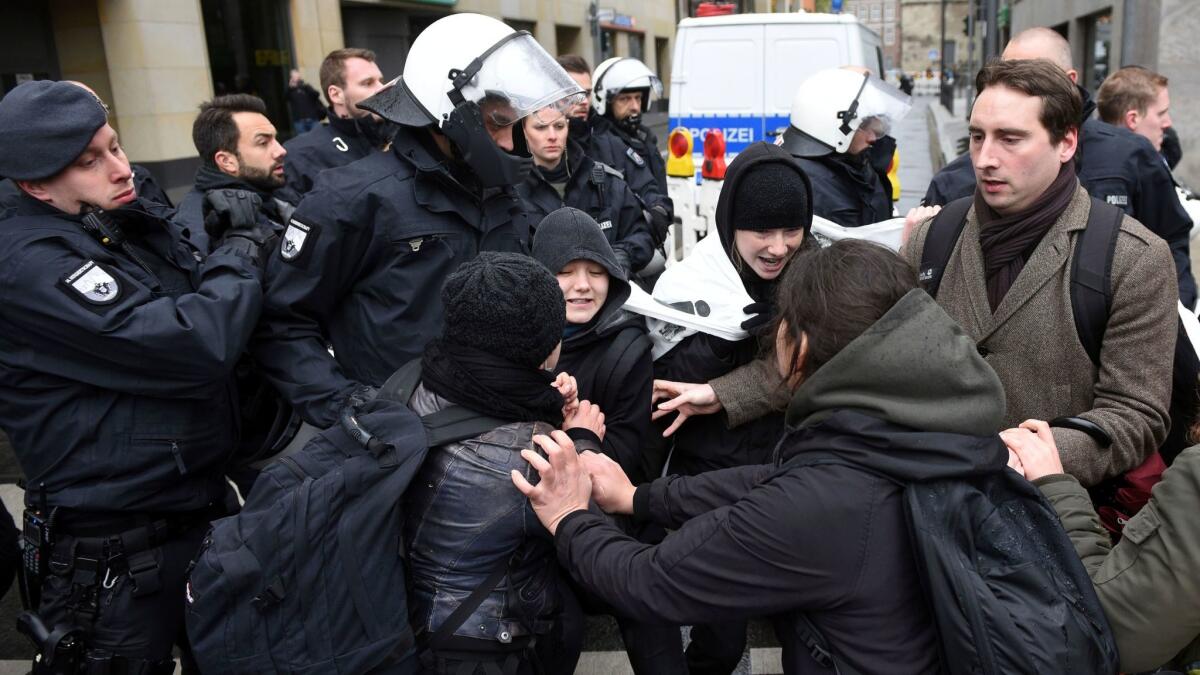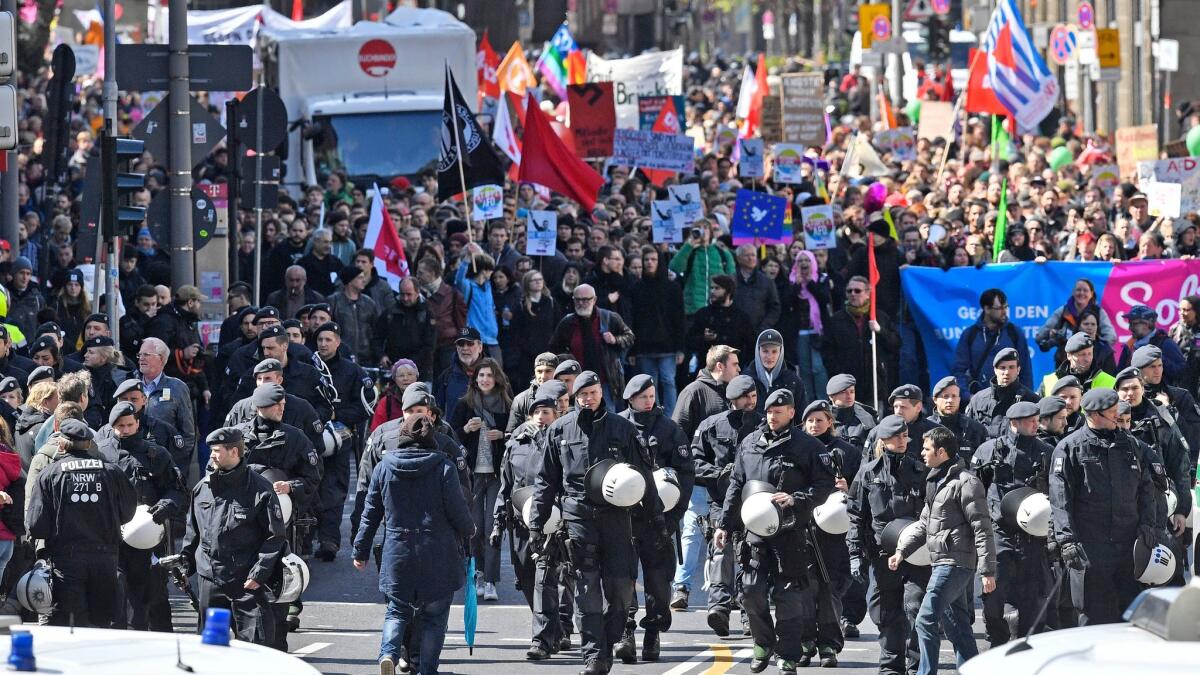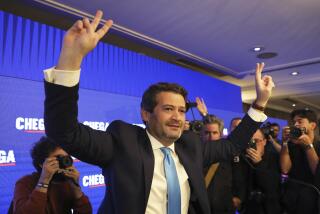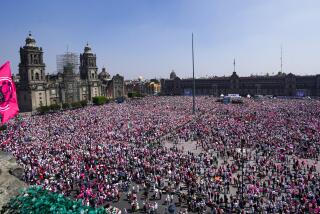Divisions, protests erupt at nationalist convention in Cologne, Germany

Divisions among German nationalists erupted Saturday as delegates from the far-right Alternative for Germany party rejected an appeal by one of their leaders to seek a pragmatic political path instead of turning into a “fundamental opposition” party.
While tensions brewed inside the AfD party convention in the western German city of Cologne, outside the hotel hundreds of left-wing demonstrators tried to block about 600 AfD party members from entering. The delegates needed massive police protection to get into the convention, and protesters injured one police officer Saturday morning while trying to block access to the hotel.
Authorities had 4,000 police officers on the ground to prevent a violent escalation of anti-populist rallies by an expected 50,000 left-wing protesters.
Speaking to AfD members, nationalist politician Frauke Petry said the party needed to set the course for a “spiritual-moral change” in Germany and the rest of Europe. But a majority of the delegates rejected a vote on the party’s future path that she had suggested.
In comparison, Joerg Meuthen, a more far-right party leader who is one of Petry’s rivals, was cheered strongly when he lashed out at German Chancellor Angela Merkel and her government’s immigration policy.
Meuthen said he sees hardly any Germans on the streets of his own city anymore — only migrants.
“We don’t want to become a minority in our own country — even though we’ve already become one in parts of it,” Meuthen said, warning that one day Germany could even become a Muslim-dominated country.
The convention takes place days after Petry said that she won’t be her party’s top candidate in Germany’s Sept. 24 general election, a move seen by many as a consequence of party leaders’ infighting about the future direction of the AfD. The populist, anti-immigrant party is seeking to enter the national parliament for the first time in that vote.

Despite earlier fears, as of noon most of the left-wing rallies in Cologne were peaceful. The state governor of North Rhine-Westphalia, Hannelore Kraft, who was attending one of the demonstrations, praised protesters for their activism.
“There are many upright democrats here and they say clearly: We want to remain as we are — a diverse, an open, a tolerant country,” Kraft said.
Petry became co-leader of the 4-year-old AfD in 2015. She ousted fellow founder Bernd Lucke, an economics professor, shifting the party’s focus from economic issues to immigration and Islam.
AfD’s poll ratings soared with the influx of migrants to Germany in late 2015 and early 2016. However, they have sagged in recent months as the issue faded from headlines and the party became increasingly mired in infighting with Petry and her husband, Marcus Pretzel,l on one side against other senior figures even further on the right.
Petry, 41, also irked some rivals by leading an effort to expel Bjoern Hoecke, AfD’s regional leader in eastern Thuringia state, after he suggested that Germany stop acknowledging and atoning for its Nazi past.
Even though she won’t be her party’s top candidate, Petry did not hint at any plans to step down as party chairwoman.
German political parties choose lead candidates for elections who generally dominate their campaigns and, in the case of bigger parties, compete to become chancellor. Her move has left the AfD without such a figurehead.
More to Read
Start your day right
Sign up for Essential California for news, features and recommendations from the L.A. Times and beyond in your inbox six days a week.
You may occasionally receive promotional content from the Los Angeles Times.






